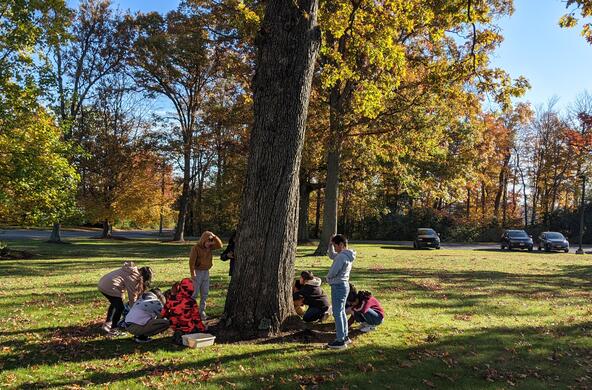- Profile
- Publications
Before joining Cary, Ashley served as a k-12 environmental educator at the Urban Ecology Center in Milwaukee, Wisconsin. She received her MS in Science Literacy Research at the University of Nebraska-Lincoln ('16) and her BS in Fisheries & Wildlife Biology from the University of Georgia ('12). Over the years, her academic research interests have ranged from captive chimpanzee behavior to understanding how undergraduates make decisions about conservation issues. Since 2012, she has been an environmental educator in five different states across the country, from the temperate rainforests of western North Carolina to the sunny shores of Catalina Island.
As Education Program Leader, Ashley is excited to devote her skills in education, ecology, and research to teaching youth using inquiry-based and data-driven methods during local school field trips and summer camp, while also contributing to innovative ecology education research. Her career focus is to inspire youth to think critically and creatively about ecology and cultivate meaningful, fun connections to their local environment. In her personal time, Ashley loves to bird, bike, cook, read, and casually search for salamanders while hiking.


